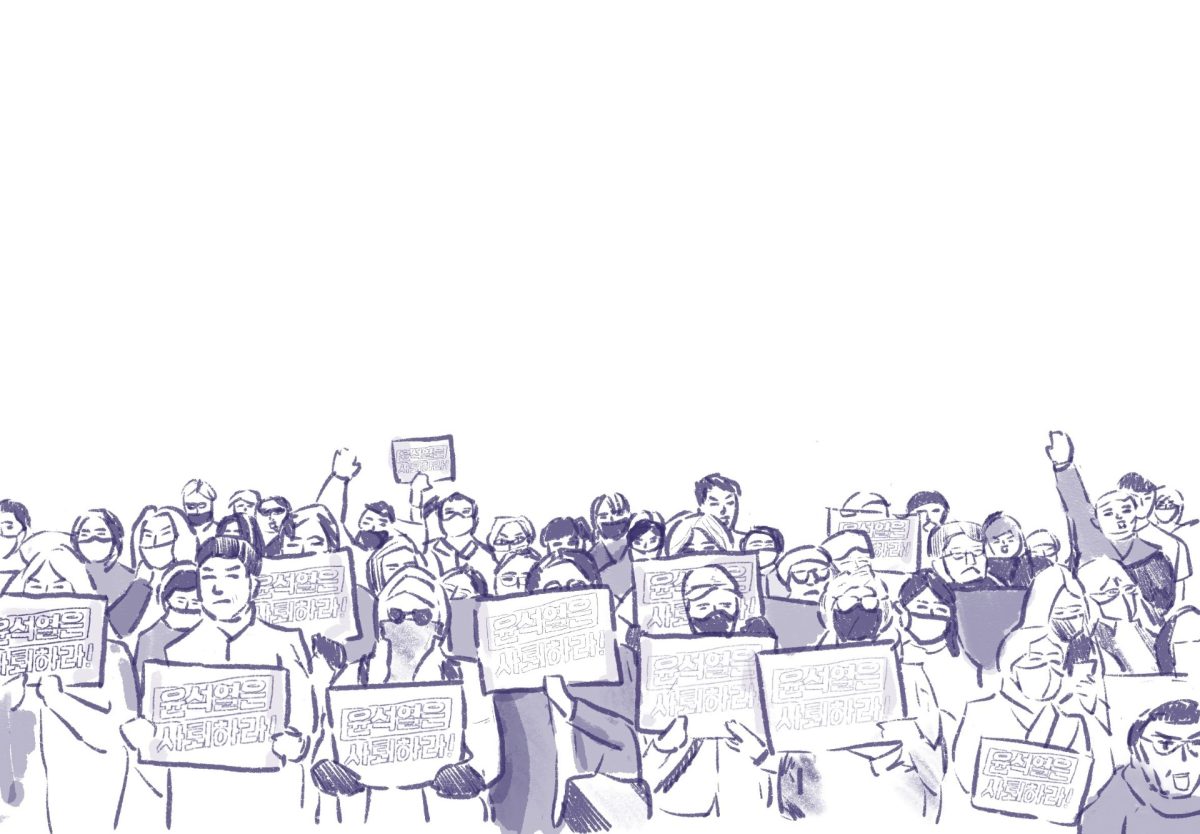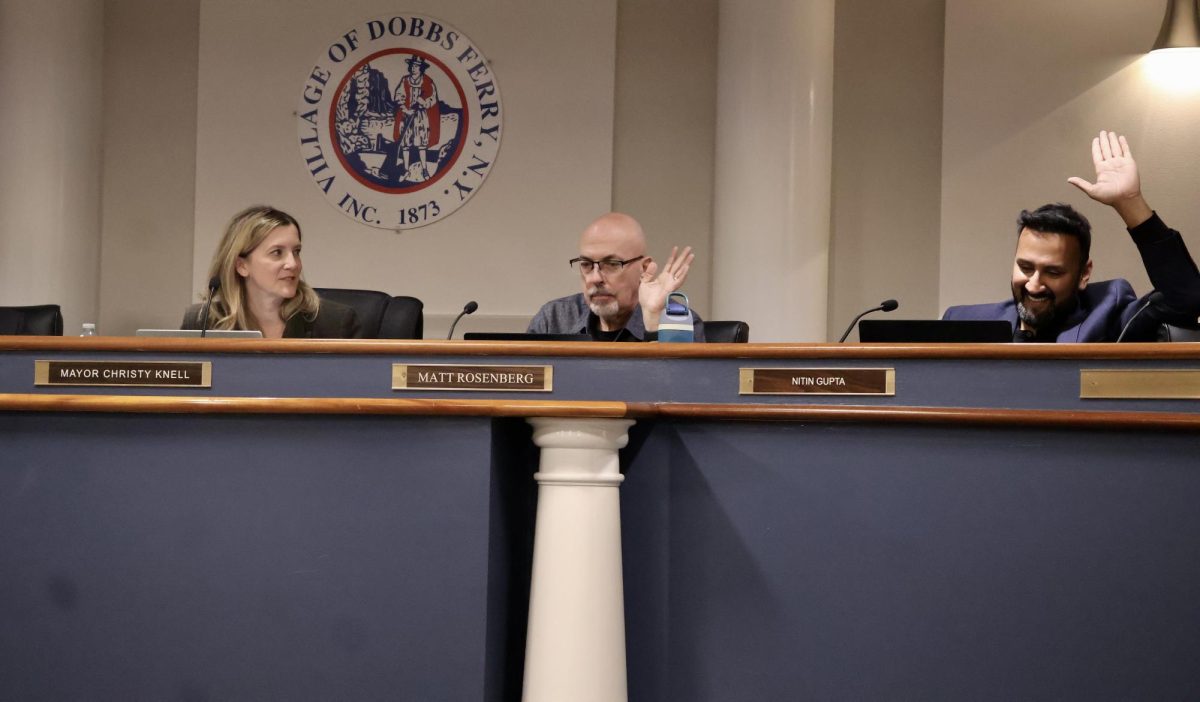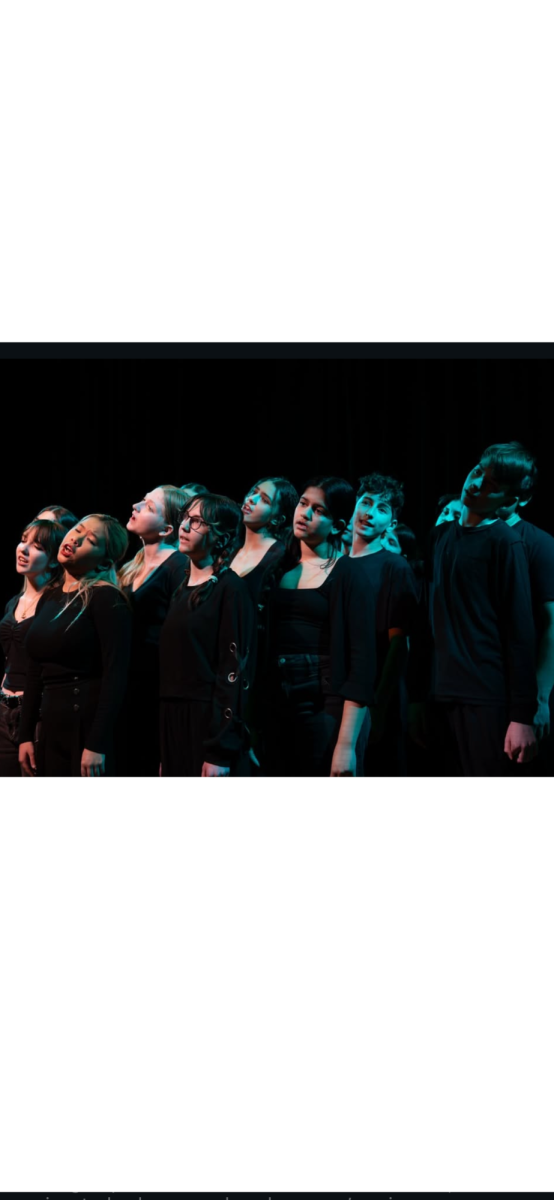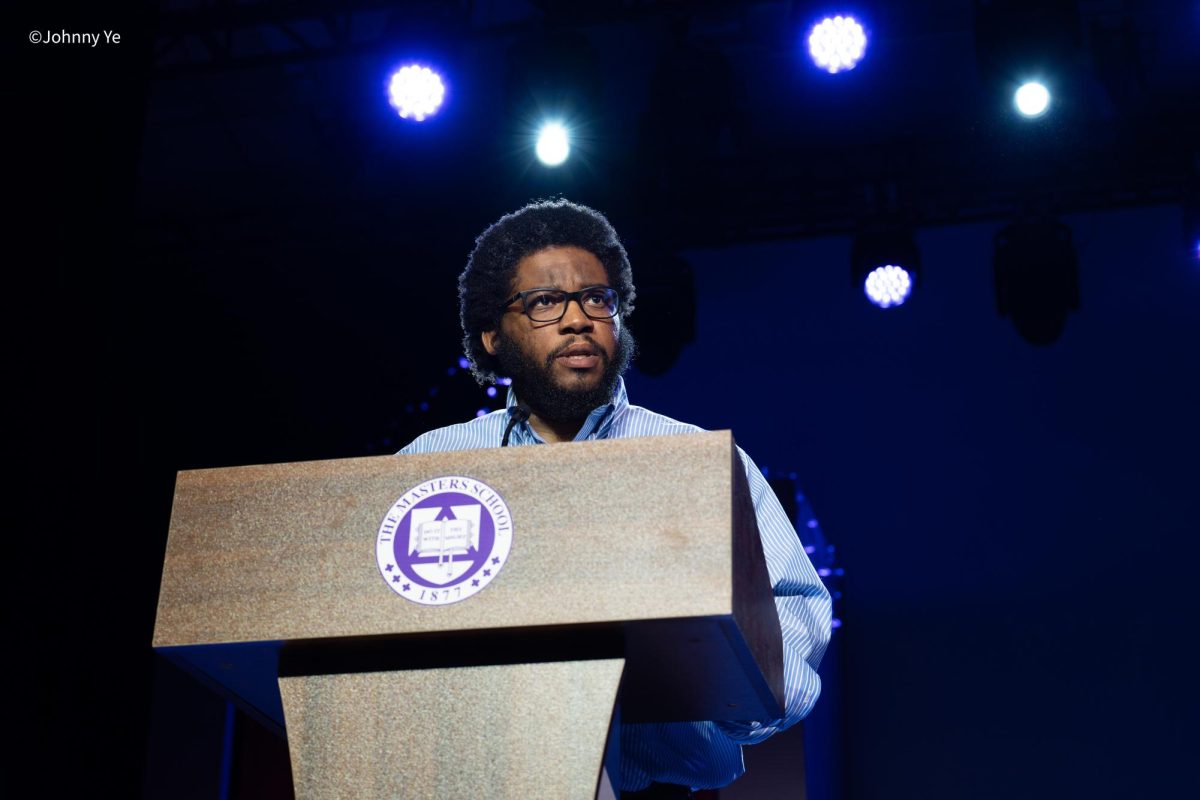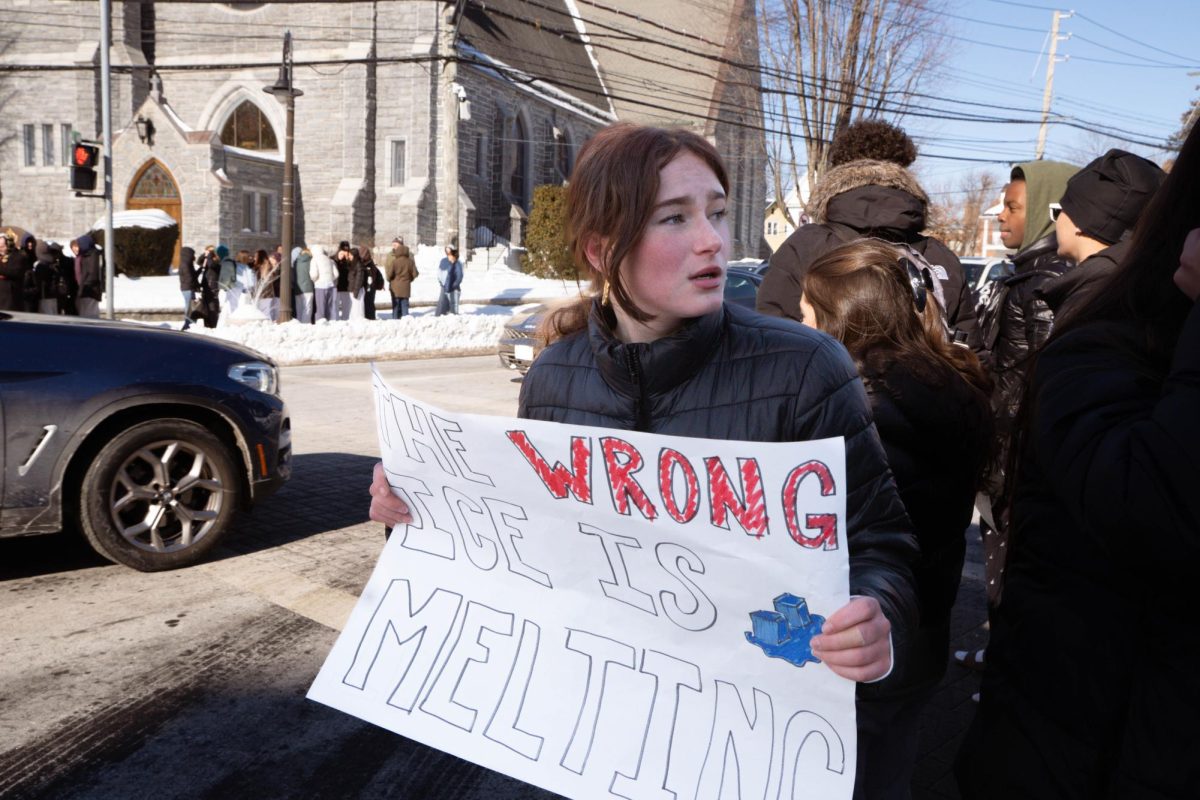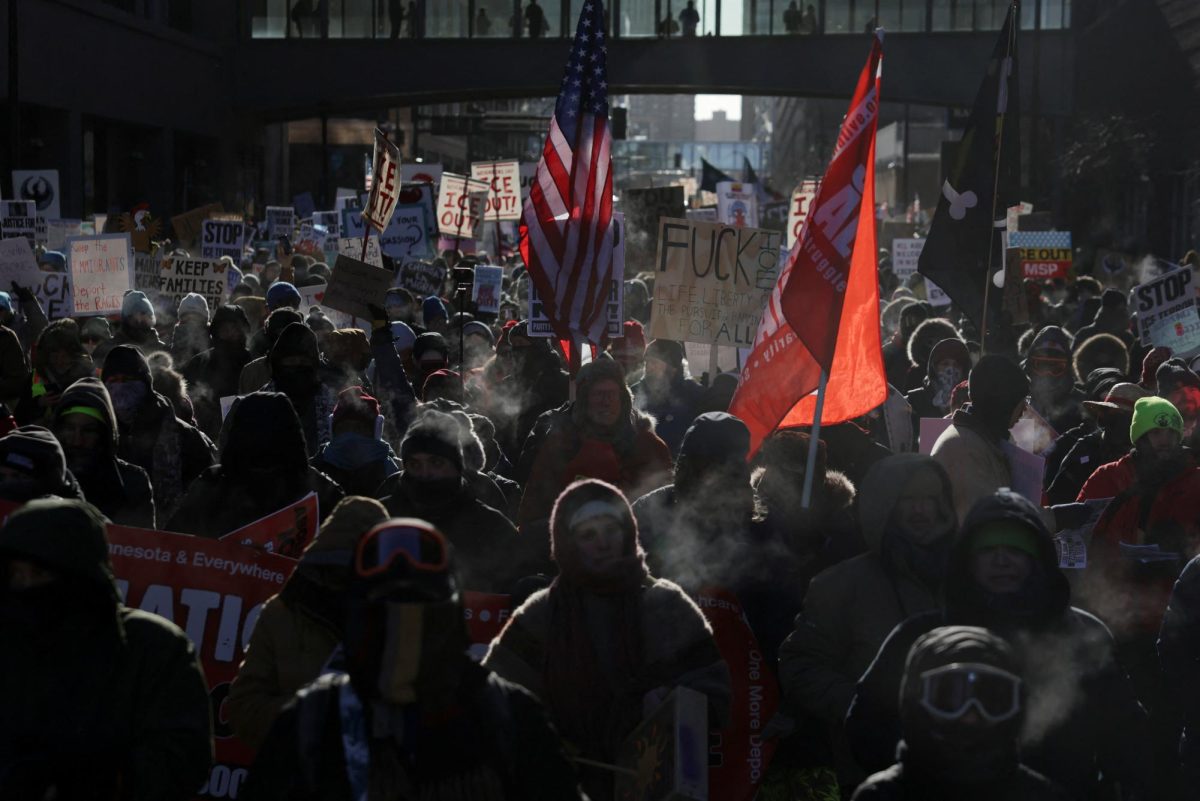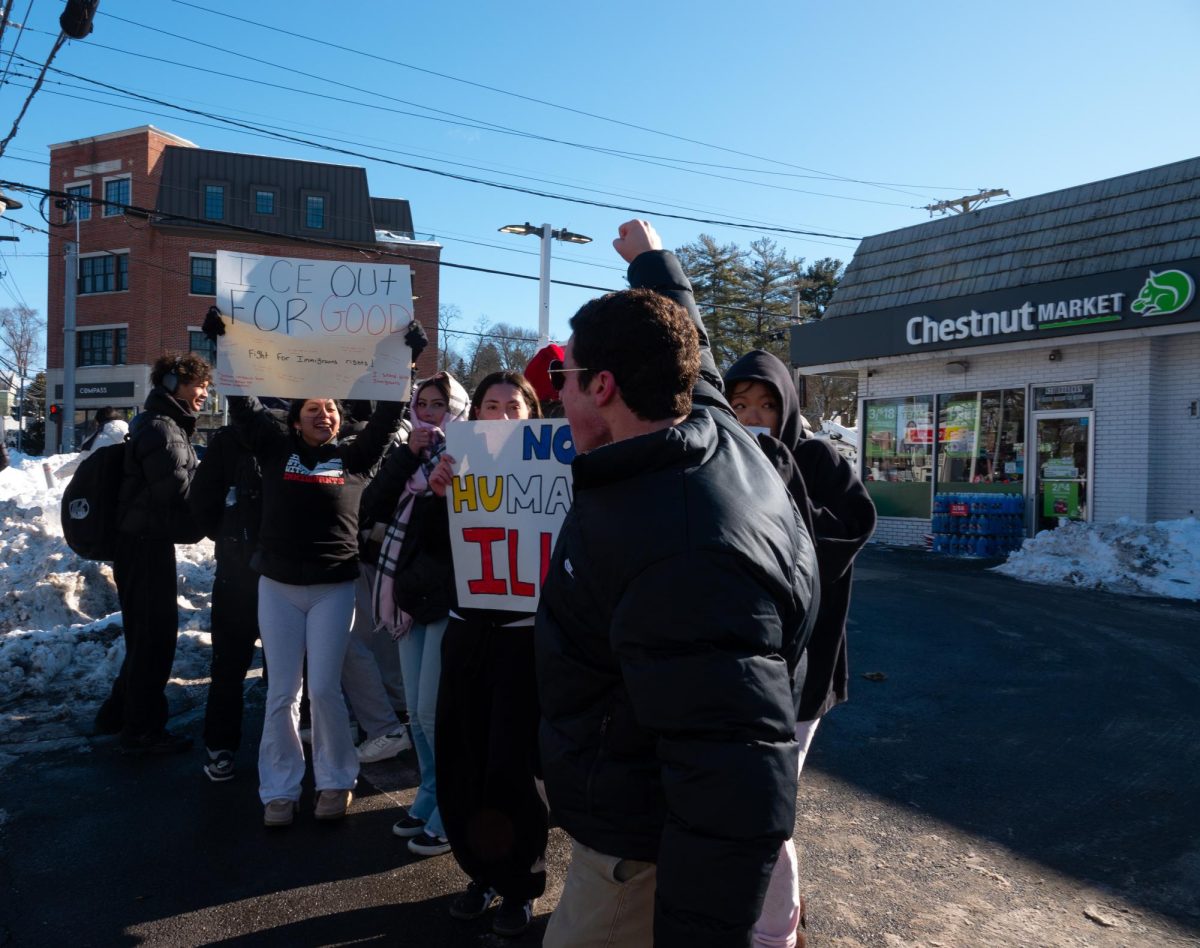People flood the dark streets. Shouts ring out through the crisp night air. Citizens are pushing against fully armed soldiers. The parliament is being blocked from the National Assembly parliament building by their own army. What is happening?
On Dec. 3, South Korean President Yoon Suk Yeol declared martial law. This entails full military control over the government. Martial law is intended for the president to be able to mobilize the military when public safety is threatened in times of war, armed conflict or other national emergencies.
First Reactions:
Korean students at Masters were very shocked and concerned when they first heard the news, though many said that they didn’t find out until later or were informed by friends.
“Because of the no-phone policy, I was actually off my computer, off my phone. The first time I realized what was going on was, I got a text on my computer from my friend who goes here,” said junior Eileen Kang.
Director of Alumnae/i Engagement Brooke Nalle was in South Korea to connect with Masters families and alumni during the event.
“My very first reaction was, ‘Oh my gosh, get me to the airport. I’m going home,’” she said.
After the first moment of panic, Nalle calmed down and contacted Korean alumni in order to hear about the situation more. Despite being assured by an alumna that she was safe, she still saved the US Embassy’s number in her phone, just in case.
Context to the Event:
Multiple possible factors contributed to Yoon’s rash decision, including ongoing political tension.
Kang said, “People often forget that Korea is actively in the middle of a war. I feel like we don’t talk about the fact that Korea is a politically unstable place to begin with.”
South Korea also has a complicated history with military rule. Before the country was a democracy, it was under authoritarian rule.
Senior Hyun-shin “Theo” Cho said, “The last time martial law was used in Korea was almost 50 years ago now and it’s traditionally associated with a dictatorship and fear-mongering.”
Junior Annette Choi said, “I don’t really know if enacting military law has ever been for the good of the people. It’s almost always been for power and because [people in power] don’t want to lose power.”
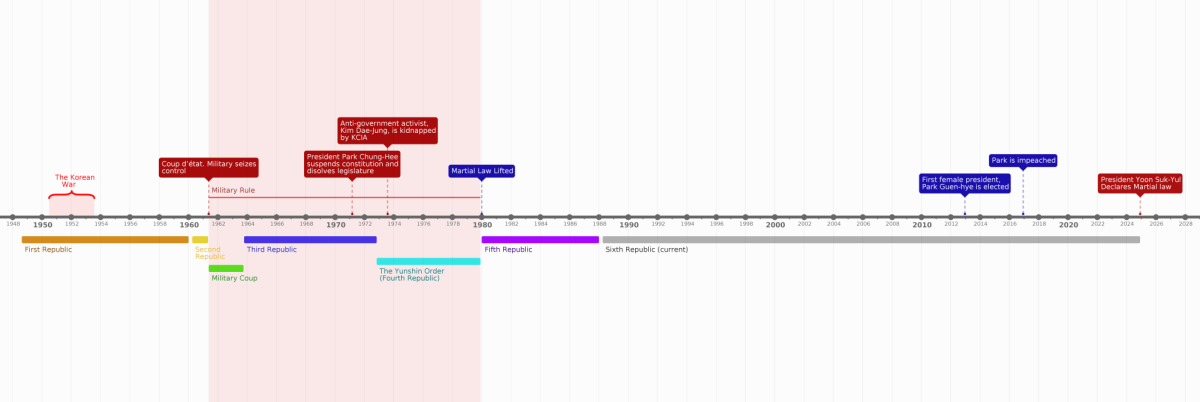
What now?
Yoon was successfully impeached on Saturday, Dec. 14, with 204 votes in favor and 85 against after a failed vote on Dec. 7 when his party staged a walkout.
Senior Chana Kim said, “Just like back in 2014 when President Park got impeached, it took a long while to do it… I already assumed that it might take months to do the impeachment.”
Yoon’s own party ultimately did not save him from being removed. Initially wanting him to resign, after Yoon’s refusal, his party leader, Han Dong-hoon, voiced his change in opinion.
Han said, “Suspending the president from his duties through impeachment is the only way for now, to defend democracy and the republic.”
Protests outside the National Assembly that had been constant since the martial law declaration soon turned into celebrations. Many students had friends or family involved or in the protests.
Cho said, “[My cousins] were there from 12 to 4 a.m. until President Yoon gave his speech declaring an end to martial law.”
Kim said there was a trend among the attendees of the protests: “My friends, living in Korea, attended the protests and they realized that there’s a lot of like teenage girls, or college girls, but there weren’t a lot of men who attended.
Kim added, “Compared to 2014 there were a lot of girls, and it shows a big, huge step from back then. The fact that these girls are really interested in politics kind of touched me.”



